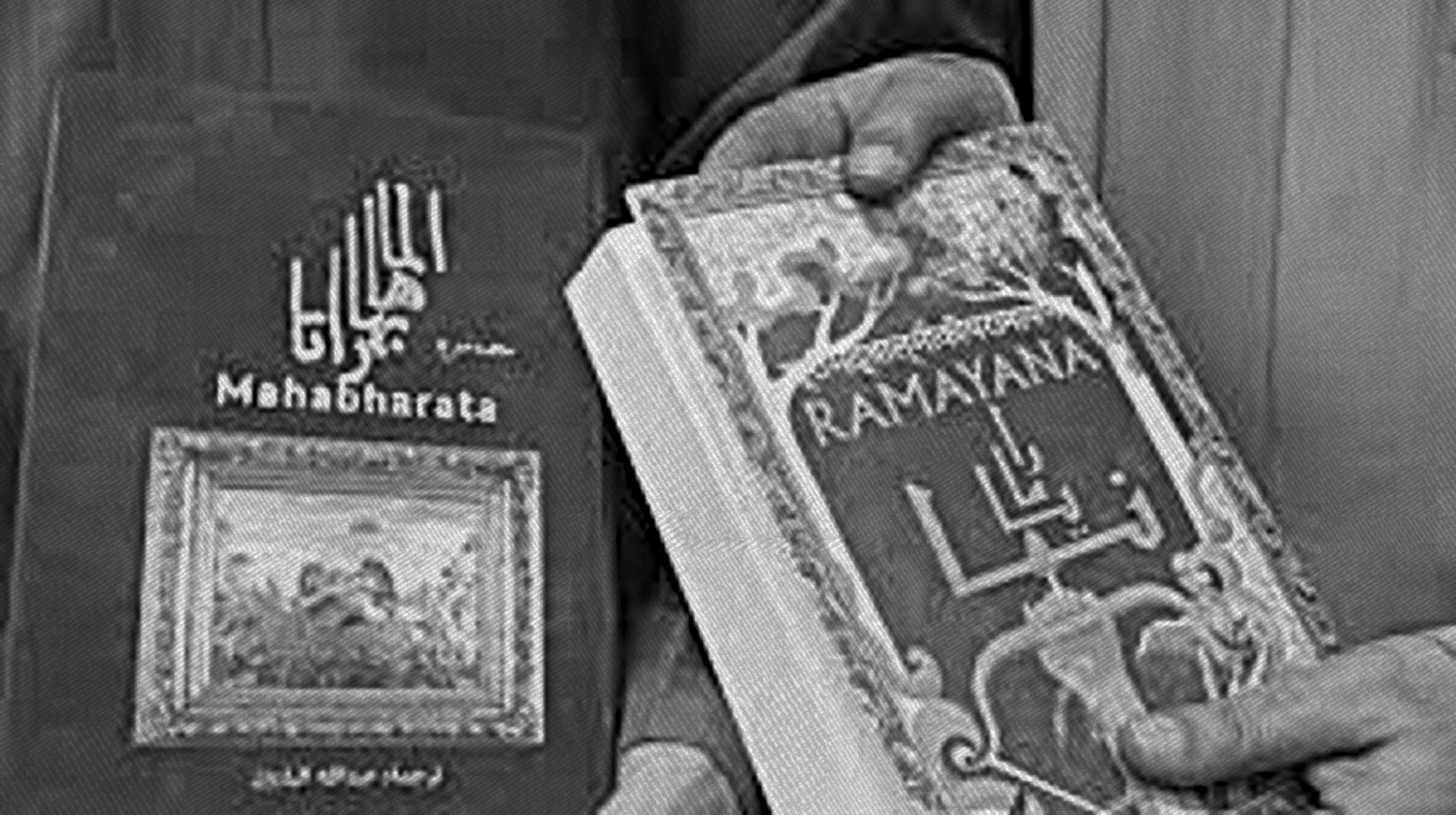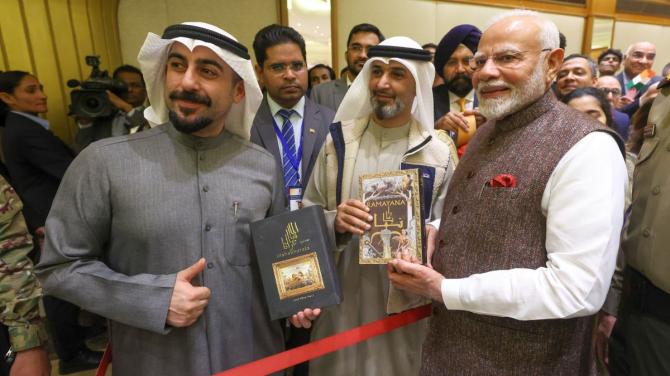
During his visit to Kuwait on Saturday, Prime Minister Narendra Modiji met Abdullah Al Baroun and Abdul Lateef Al Nesef, two individuals instrumental in bringing India’s cherished epics—the Ramayana and the Mahabharata—to Arabic-speaking audiences.
Al Baroun, a noted scholar, translated both the epics into Arabic, while Al Nesef took on the crucial role of publishing these translations. Their collaborative efforts mark a significant milestone in fostering cultural exchange between India and the Arab world. Prime Minister Modiji had previously lauded their contributions in his monthly broadcast, Mann Ki Baat, emphasizing the importance of such endeavors in building global bridges.

Celebrating Indian Culture Globally
Prime Minister Modiji’s international visits often highlight Indian culture, showcasing its richness and universal appeal. Recently, he shared a post on the social media platform X, celebrating the global resonance of Indian traditions. The montage featured captivating moments such as people singing Vande Mataram in Austria, performing Dandiya in Poland, and enacting the Ramayana in Laos.
In the post, Modiji expressed his joy, stating, “Wherever I go, I see immense enthusiasm towards our history and culture, which is extremely gladdening.”
A Step Towards Global Cultural Dialogue
The Arabic translations of the Ramayana and Mahabharata open a new chapter in cross-cultural dialogue. By making these timeless stories accessible to Arabic-speaking audiences, Al Baroun and Al Nesef have played a pivotal role in fostering understanding and appreciation for Indian heritage. This effort is a testament to the enduring appeal of India’s epics, whose themes of duty, righteousness, and universal values continue to inspire audiences across the globe





